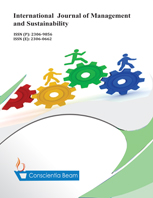An Investigation into the Factors Affecting the Sustainability of the Land Reform Programme Beneficiaries in Kwa Zulu-Natal Province
DOI:
https://doi.org/10.18488/journal.11.2018.71.43.62Abstract
This article sought to investigate factors affecting the sustainability of the land reform programme beneficiaries in Kwa Zulu-Natal Province, South Africa. A consistent decline on production is an enormous concern in land reform in Kwa-Zulu Natal. As a result, the Department of Rural Development and Land Reform is confronted with unproductive farms irrespective of the funds invested in them where there is no evidence on the ground that these farms were recapitalised. In an attempt to reverse this declining trend in production levels; an in-depth understanding of the underlying challenges was needed hence this research attempted to provide possible solutions to the problem. Some of the findings in this research indicated that the key factors influencing the sustainability of land reform programme beneficiaries in KwaZulu-Natal include the financial literacy, general education, specific skills in a field of agriculture and financial management capability. The key recommendations of the study are that land reform programme beneficiaries should be assisted with acquiring particular agricultural skills, financial and human resource management skills, and supported in access to affordable financing. The study recommends that government must select the correct beneficiaries based on their interest and knowledge of agriculture, to train the under skilled beneficiaries and equip them with relevant farming skills. These beneficiaries need to be supported on various aspects of financial, human resource and operations.

